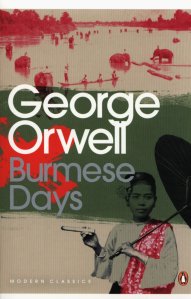I already had a pretty high opinion of Fouad Laroui as a writer and a social and political analyst. His book “Les Tribulations du Derniers Sijlmassi” have made me reflect deeply on a matter that I was already fascinated about: the overwhelming relationship between individuals and technology. I have discovered with delight the spirited writing style of Laroui, full of intellectual humor but deeply thought-provoking. “Ce Vain Combat que tu Livres au Monde” is another masterpiece by this prolific writer, whom I think I can easily call my favorite Moroccan author.

“Ce Vain Combat que tu Livres au Monde” although on a totally different topic, shows the mastery of Laroui and his storytelling skills on a wide range of issues, and specifically the sensitive topic of radical extremism and terrorism.
The novel recounts the story of Malika and Ali, a couple that decide to move in together. Malika is a native French from Moroccan parents, and Ali is a Moroccan that has been living in France for several years since he came to study in Paris. He is a brilliant IT engineer. The project proposal he elaborated is going to the next level as the company he is working for is going to be approved as a contractor. Although Ali was the project lead and by far the most qualified person to implement it, he is going to be dismissed brutally. When he tries to dig deeper on the reason, he discovers that since the project involved governmental security and defense, his name was automatically rejected because he is Muslim, Arab and Moroccan: three serious charges.

The feeling of injustice will lead to a severe depression that will make Ali re-question his whole identity. He will develop, with the influence of his cousin Brahim, a visceral hate of the West and although Ali has never been “practicing his faith”, he will develop radical thoughts. Religion has never been a relevant matter to him, but now he perceives it as the solution to his misery.
Enough about the narrative, I do not want to spoil it, although the landscape clearly shows the development of the story. Ok, whatever, I will spoil it. Ali is going to join the “Islamic Caliphate”, and eventually decide that it is not what he signed up for. Unfortunately, the story obviously ends on a very tragic note.
Filled up with events that you would naturally expect from this frustrating work issue (Ali changing towards his partner, denial of previous behavior such as drinking alcohol, questioning gender roles…), the narrative is often interrupted with background history of the Arab people: the division of Middle East through the Sykes Picot agreements, the betrayal of Lawrence of Arabia, the promise of Balfour, the Golden Age of Islam and the Western perspective of world history…
My analysis is that these events are not recounted to justify the mess of the Middle East and to blame it all on the West and their numerous manipulations on the region, but rather to give a framework of analysis for readers. What I appreciated about the novel is that it never falls in judgments or taking sides. Instead of this, Laroui explores and digs deeper in every arguments of both sides. When you think he takes on side, he flips the coin to show you another perspective.

This story is fictive, but it could as well have been the story of the thousands of youth that join the “Islamic State” out of frustration and despair, only to realize later on that it was a stupid idea. This novel is moving because it raises questions without answers. How can young people feel so miserable as to identify with the “ideals” of ISIS? How can they express protest through taking the lives of innocent people? How can there be so much frustration and hate in the world? When did this even happen?
The novel closes on the attacks in Paris in November 2015. We all have witnessed the scenes of horror at the terraces of cafes. However, I felt that a written insight, although imaginary, was much more terrifying. They say an image is worth a thousand words.. When the words are just, words are worth a thousand images.
Novel is highly recommended. It gives a deep insight in France’s contemporary identity and social issues related to immigration, religion and secularism. It also gives an independent overview on Arab history without linking the dots, giving freedom to readers to interpret, decode, and evaluate.

